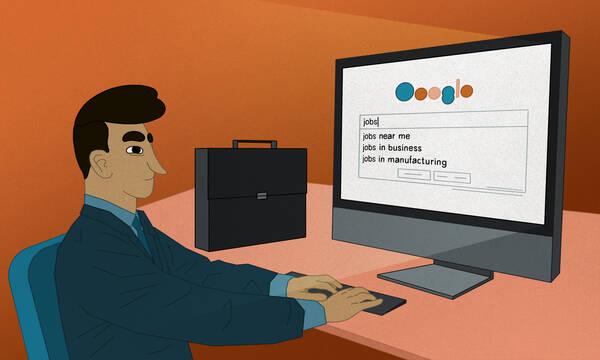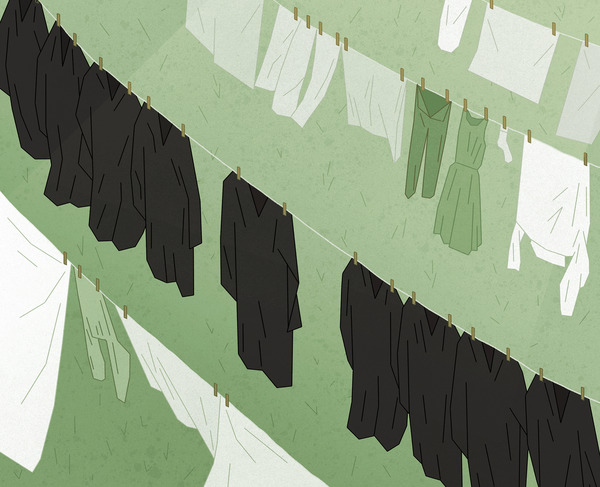Policy & the Economy

June 3, 2019
A Nation’s Wealth May Depend on How Much Its Workers Can Learn on the Job
New research suggests that formal schooling is not the panacea to global inequality that many have long believed it to be.
David Lagakos, Benjamin Moll, Tommaso Porzio, Nancy Qian and Todd Schoellman

June 3, 2019
What Causes Stock Market Swings?
Tariffs? Job reports? Oil prices? A new volatility index pinpoints which factors make investors feel uncertain.
Scott R. Baker, Nicholas Bloom, Steven J. Davis and Kyle Kost

May 2, 2019
How Big Is the Gender Gap in Science Research Funding?
Two new studies look at who wins the prestigious grants and prizes that can make or break a scientist’s career.
Brian Uzzi, Diego FM Oliveira, Yifang Ma and Teresa Woodruff

May 1, 2019
Worried You’re Not Saving Enough for Retirement? Here’s What You Can Do.
An economist offers suggestions for individuals and policymakers to help make retirement more secure.
Benjamin Harris

April 4, 2019
Do Police Body Cameras Provide an Impartial Version of Events?
New research reveals that people assign blame differently after viewing body cam versus dash cam footage.
Broderick Turner, Eugene Caruso, Mike Dilich and Neal J. Roese

January 7, 2019
Which Voters Want to Expand Medicaid? Maybe Not the Ones You Think
4-year degree-holders tend to be big supporters—even though they are personally unlikely to benefit.
David A. Matsa and Amalia R. Miller

January 7, 2019
How to Navigate a Vertical Merger after the AT&T and Time Warner Ruling
Here’s what companies can do to minimize antitrust concerns in an uncertain regulatory environment.
R. Mark McCareins

January 7, 2019
Not Everyone Benefited from Lower Interest Rates During the Great Recession
The Fed wanted to help struggling homeowners. But new lending rules undermined its efforts.
Anthony DeFusco and John Mondragon

January 3, 2019
Politicians Vote Differently When Journalists Aren’t Watching
During natural disasters, the media spotlight shifts—and special interests benefit.
Ethan Kaplan, Jörg L. Spenkuch and Haishan Yuan

December 5, 2018
What Google Is Teaching Economists About Unemployment Insurance
Search data can tell policymakers whether extending unemployment benefits delays job-seeking.
Scott R. Baker and Andrey Fradkin

December 3, 2018
Organizational Change Is Often a Tough Sell, but Encouraging Peer Interactions Can Help
A study of teachers offers lessons on how to get employees on board with reforms.
James P. Spillane, Megan Hopkins and Tracy M. Sweet

September 13, 2018
Supreme Court Justices Become Less Impartial and More Ideological When Casting the Swing Vote
A new study suggests that justices may treat cases differently when given a chance to shape policy.
Tom Clark, B. Pablo Montagnes and Jörg L. Spenkuch

August 3, 2018
How Governments Can Better Defend Themselves Against Cyberattacks
The threat of retaliation can keep the peace. But that assumes you know who is attacking you.
Sandeep Baliga, Ethan Bueno de Mesquita and Alexander Wolizky

May 8, 2018
How to Make Economic Development More Inclusive
Two finance experts discuss the need to tailor strategies to specific underserved communities.
Janice C. Eberly and Don Graves

March 5, 2018
Does Lowering the Corporate Tax Rate Spur Economic Growth?
Results of a new study have implications for the recent U.S. tax overhaul.
Nir Jaimovich and Sergio Rebelo

March 2, 2018
Privatizing Medicaid Drug Benefits Reduces Spending
The savings come without any decrease in quality of care, new research shows.
David Dranove, Christopher Ody and Amanda Starc

March 1, 2018
When Do People Label Attackers as Terrorists versus Mentally Ill?
New research shows that people’s assumptions go beyond stereotypes.
Masi Noor, Nour Kteily, Birte Siem and Agostino Mazziotta

February 5, 2018
Take 5: How Do Households Manage Fluctuating Finances?
Plus, how policymakers can help them manage better.
Janice C. Eberly, Lorenz Kueng, Scott R. Baker, Anthony DeFusco and John Mondragon

February 1, 2018
When Healthcare Providers Consolidate, Medical Bills Rise
Can anything be done to rein in this expensive trend?
Cory Capps, David Dranove and Christopher Ody

February 1, 2018
Audit Regulations Meant to Curb Accounting Scandals Are Working, Mostly
A post-Enron oversight board is a useful example for the regulation of other industries.
Daniel Aobdia
Insight in your inbox
Receive our newsletters to keep up with the latest research and ideas from faculty at the Kellogg School of Management.
This website uses cookies and similar technologies to analyze and optimize site usage. By continuing to use our websites, you consent to this. For more information, please read our Privacy Statement.

The Insightful Leader
November 23, 2025 · 19:20 minutes
November 7, 2025 · 17:49 minutes